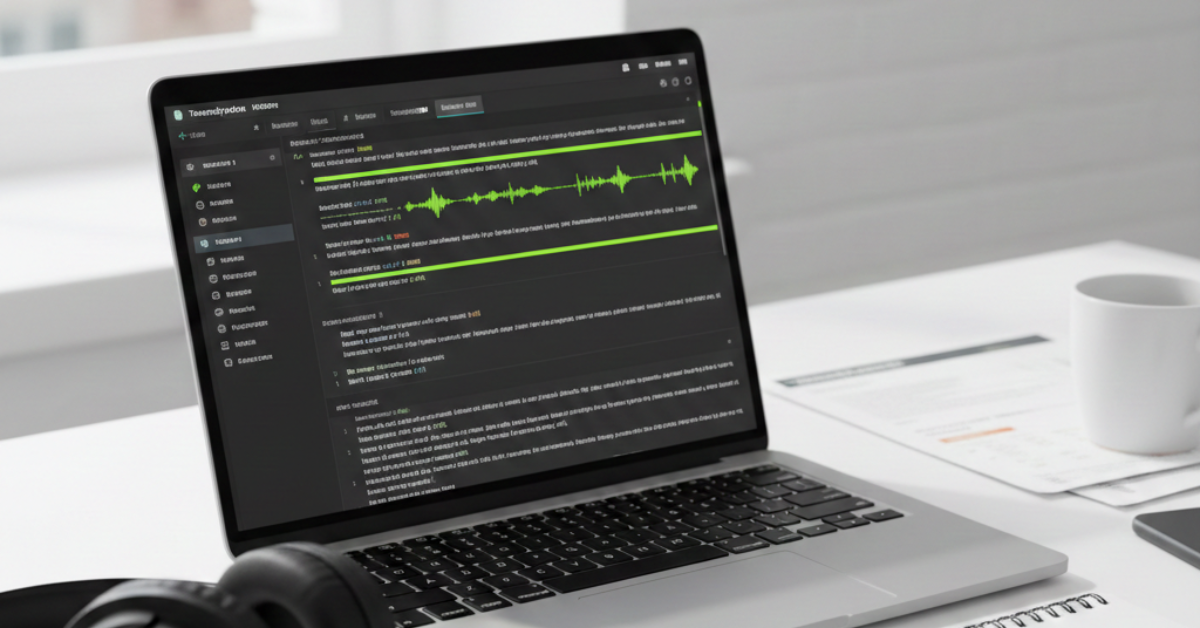Applying AI to Focus Group Transcription Services
Jan 09, 2025, Nishi SinghFocus group transcription services have embraced artificial intelligence (AI) and automation, resulting in rapid transformation. By accelerating transcription processes, improving transcription accuracy and offering cost-effective solutions, AI revolutionized the way businesses handle transcription of focus group discussions. This shift made several options available, to companies seeking to leverage transcription services to extract insights from Qualitative Research.
Here are 3 key ways AI is influencing the domain of focus group transcriptions:
1. Gaining Accuracy and Speed
One of the most impactful changes AI has brought to focus group transcription is its ability to deliver rapid results with high accuracy. Traditionally, human transcriptionists needed hours, if not days, to transcribe a single discussion; and even then, human limitations led to unavoidable errors. Instead, AI-powered tools utilize sophisticated algorithms to process audio files in a fraction of the time it takes to do so manually. Advanced natural language processing (NLP) capabilities ensure that nuances like accents, speech patterns and overlapping voices are precisely identified.2. Cost-Effective Solutions
For any organization evaluating focus group transcription prices, AI-powered systems offer a financially advantageous option. Manual transcription is labour-intensive and often comes at a higher per-unit cost. Instead, a business employing AI-powered tools can significantly lower these prices, while upholding quality. Automated transcription software eliminates the need for extensive manual intervention, thereby allowing businesses to allocate their budgets more effectively.3. Enhanced Customization and Searchability
Another major advantage AI brings to focus group transcription is its ability to tailor transcripts for specific needs. Smart algorithms can categorize and tag key moments or themes from the discussion, making it easier to locate and analyze critical information. These features are particularly useful for researchers who rely on the transcription of focus group discussions to uncover actionable insights, admist tight deadlines. Additionally, AI enables the creation of searchable transcripts, where users can instantly locate keywords or phrases from lengthy discussions. This capability proves invaluable for industries such as market research, healthcare and education, where time-sensitive decisions depend on precise data extraction from tomes of data.Challenges and Ethical Considerations
Despite its many benefits, the integration of AI into focus group transcription does pose new challenges. Confidentiality is a primary concern, as sensitive discussions may be processed through cloud-based AI platforms. Companies must ensure that robust data encryption and compliance policies are in place, to safeguard participants' and clients' privacy. Furthermore, while AI continues to evolve, some transcription nuances eg. identifying cultural context or sarcasm - might still require a human eye, to preserve the depth and intent of the discussion.The Future of Focus Group Transcription with AI
Future-oriented focus group transcription service providers are adopting a hybrid approach, combining the speed and efficiency of AI with the expertise and contextual understanding of human transcriptionists. This balance ensures that transcripts are not only accurate and time-effective, but also sensitive to the subtle dynamics underlying group discussions. With continuous advancements in machine learning and NLP, AI will undoubtedly continue to elevate the standards of focus group transcription services.In conclusion
AI’s impact on focus group transcription is undeniable; bringing unprecedented speed, affordability and quality to the fore. By carefully selecting reputable providers and ensuring ethical data practices, businesses can maximize the potential of these innovations. Whether you’re evaluating focus group transcription services or exploring competitive focus group transcription rates, it’s clear that AI is driving the industry towards a more efficient and reliable future where actionable insights are within reach like never before.
At myTranscriptionPlace, we pride ourselves of being at the forefront of innovation in Transcription services. Offering automatic transcription services in over 63 languages, we ensure unparalleled accessibility and precision for clients around the globe. Whether you're conducting international research among a multilingual audience or striving for seamless communication, our platform is designed to deliver exceptional results. Trust myTranscriptionPlace to transform your transcription needs into a seamless, efficient experience that transcends language barriers.






